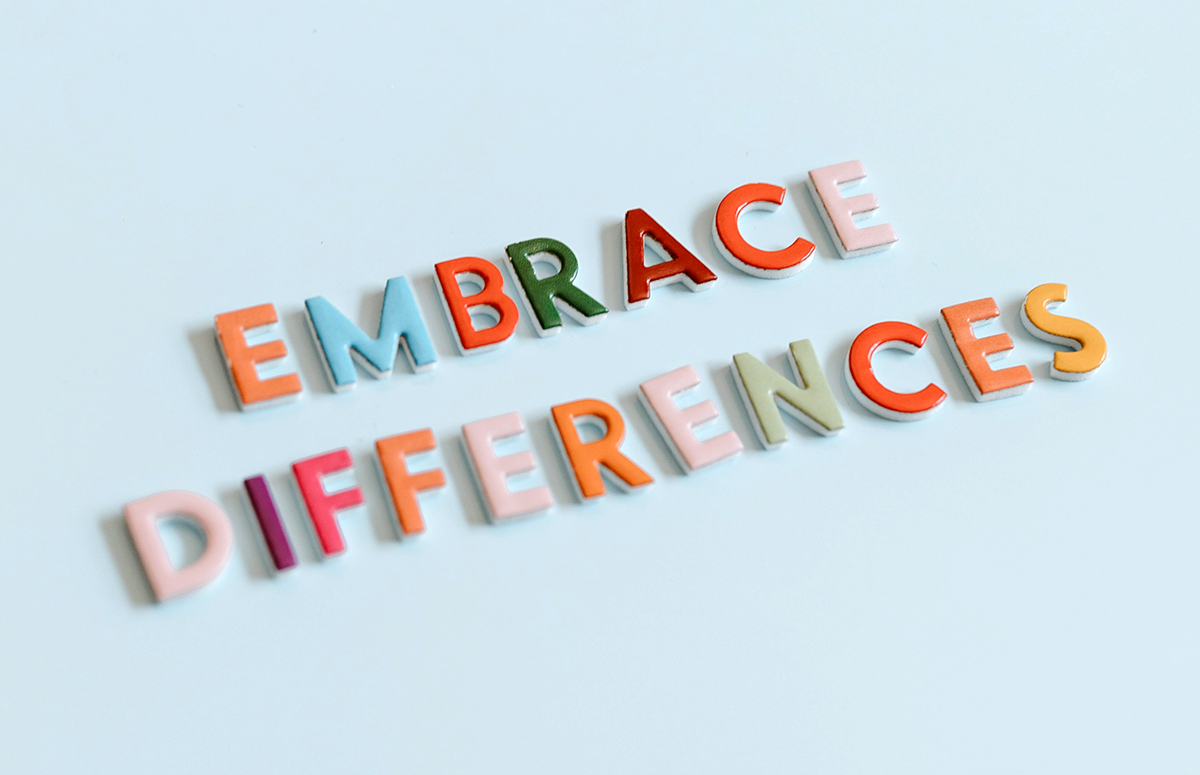Blog #28
Neurodiversity in the Workplace

I recently had a deep and engaging conversation with my good friend and mentor, Kathryn Parsons, and I thought: I must share this with everyone. So, here goes!
The role Kathryn has played in my life
Before anything else, a little background on Kathryn is in order:
Kathryn was born nonverbal autistic. Throughout the time I’ve known her, I realised that during my own journey towards acceptance in a male-dominated industry at work, there is so, so much more we need to be doing to assist those with diversity of the mind.
I worked with Kathryn for several years – I witnessed how she worked her way up from Manager to Global Head of Digital Marketing to Chief Digital Operations Officer – and this was largely driven by not only her sheer hard work, talent and dedication but also neurodiversity.
What is neurodiversity, then, you might wonder?
Neurodiversity explained
Neurodiversity (ND) refers to the brain’s cognitive ability to have variations in, for example, learning, attention, sociability, mood, and a broad range of other mental functions. But that’s a somewhat oversimplified definition, according to Wikipedia.
Harvard Health describes it as the idea that individuals experience the world and interact with it in a variety of ways – so, in a manner of speaking, there’s no “right” way or “ideal” way of thinking, behaving learning, etc. and that any differences they have with people who are following a set trail are not to be seen as deficits.
I couldn’t agree more! Unfortunately, the problem is, every time “neurodiversity” comes up in a conversation, people see it in the context of autism spectrum disorder (ASD), along with other neurological or mental development conditions such as attention deficit hyperactivity disorder (ADHD).
Despite being a ‘flag carrier’ for ND, Kathryn is an executive leader at her current workplace and was recently recognised as being among the ‘Top 10 Inspiring Women Shaping SEO’ for International Women’s Day 2022.
I highly recommend the book, Failing Forward by John C. Maxwell, which Kathryn suggested. The profound quote from John C. Maxwell stuck out like a sore thumb during our conversation:
“If you really want to achieve your dreams – I mean really achieve them, not just daydream or talk about them – you’ve got to get out there and fail; fail early, fail often but always fail forward. Turn your mistakes into stepping stones for success.”
Furthermore, here are some powerful quotes from Kathryn that I reflect upon when I am facing adversity at work:
- “Leave a workplace better than when you started”.
- “Use Performance Reviews as a launching pad to do better. Fail forward”.
- “Whatever was a weakness, turn into a superpower”.
- “Creating safe spaces for individuality at work is really important since we all have different strengths and weaknesses”. This is particularly true for a neurodiverse workforce. As Kathryn highlights, for example, people with autism are on a spectrum so they’re all unique. Organisations can champion neurodiversity through inclusive recruitment, education, training, and adjustments needed.
- “Think differently. Try to see problems from different points of view rather than force everyone into a one size fits all”.
All in all, I strongly feel that people at work need to understand that:
- Autistic people see possibilities that others can’t, to make things better, so don’t take their personalities, which you may initially see as naïve and oppositional, as a weakness. After all, questioning the status quo isn’t a bad thing. Autistics are change-makers largely because they see the world differently.
- Become comfortable with people saying “no” – oftentimes, you only need one person to say “yes” because that’s the kind of person who can help turn things around.
- So what if some people are not as good at their job as others? Learn to pick them up and encourage them to keep going.
Key Takeaways –
- You don’t have to follow the rules etched in stone all the time. Blaze your own path and encourage everyone else to blaze their own path too.
- Be so good that they cannot ignore you – well, Steve Martin said that, and now I’m (appropriately) reposting it here!
- Learn to build organisations and people – build people up, don’t tear them down.
- Don’t be afraid of failure – always continue to test the waters and learn from every experience.
About LEAD Network Europe
The LEAD Network Europe is a non-profit and volunteer-led organisation whose mission is to attract, retain, and advance women in the consumer products and retail sector in Europe through education, leadership, and business development. The LEAD Network is run by and for its members, women and men, and we value every individual for their unique perspective. With a primary focus on promoting gender equality the organisation strives for the advancement of women of every race, ethnicity, gender identity or expression, sexual orientation, age, educational background, national origin, religion, physical ability and lifestyle. Its vision is of a fair, diverse and vibrant industry where everyone can thrive. A diverse workforce where both men and women are enabled to contribute their full potential and lead their organisations to the next level of value creation. LEAD Network accounts for 18,000+ members – both women and men – from 81 countries.
For more information, please visit www.lead-eu.net

